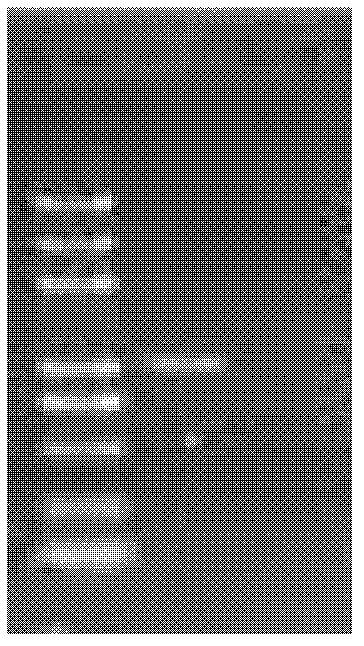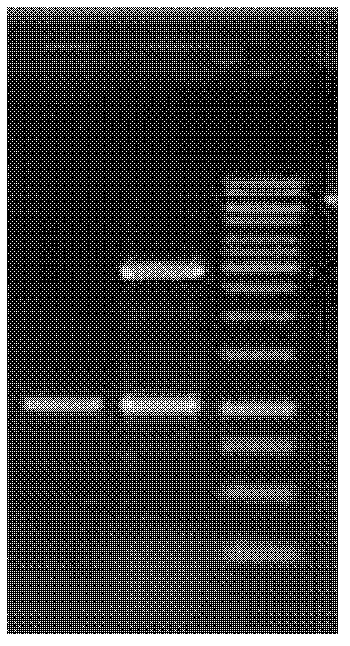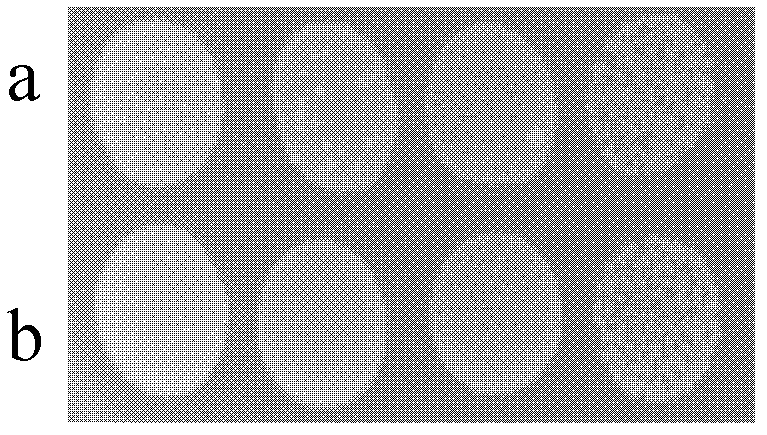Application of dap gene in Deinococcus radiodurans R1 in breeding of salt tolerant plants
A plant and gene technology is applied in the application field of the gene in improving the resistance of plants to salt stress, and can solve problems such as unseen
- Summary
- Abstract
- Description
- Claims
- Application Information
AI Technical Summary
Problems solved by technology
Method used
Image
Examples
Embodiment 2
[0037] Example 2 Salt tolerance experiment of recombinant strain containing D. radiodurans R1dap gene (DRB0118)
[0038] 1. Experimental method
[0039] 1. Inoculate the two recombinant Escherichia coli obtained in Example 1 into 20 mL LB liquid medium (containing Amp antibiotics), shake the flask overnight (37°C), and then transfer to 100 mL LB liquid medium. Try to keep the same amount of inoculum and cultivate to OD 600 ≈0.5 is fine.
[0040] 2. After centrifugation, 10 mL of the bacterial solution is shocked in an equal volume of 4M NaCl salt solution for 2 hours, and each sample is immediately diluted to 10 times with sterile deionized water. -4 , Take 10μL spot on the surface of LB solid medium, incubate at 37℃ for 16h, observe the colony formation and take pictures.
[0041] 2. Experimental results
[0042] image 3 It was shown that the growth status of the JM-dap strain containing the D. radiodurans R1dap gene (DRB0118) before the impact of the 4M NaCl salt solution was basica...
Embodiment 3
[0045] Example 3 Expression of dap gene (DRB0118) in tobacco and identification of salt tolerance of transgenic plants
[0046] (1) Construction of expression vector containing target gene
[0047] Based on the full-length coding sequence, design primers that amplify the complete coding reading frame, and introduce restriction endonuclease sites on the positive and negative primers (this may depend on the selected vector) to construct an expression vector. Using the amplified product obtained in Example 1 as a template, after PCR amplification, the sequence cDNA was cloned into an intermediate vector (such as pBluescript), and further cloned into a binary expression vector (such as pBI121 and pCAMBIA2200). Under the premise, the identified expression vector is transferred to Agrobacterium, and the leaf disc method is used to transform the model plant tobacco.
[0048] (2) Using leaf disc method to transform tobacco
[0049] Pick the positive colonies on the YEB selection plate with a...
PUM
 Login to View More
Login to View More Abstract
Description
Claims
Application Information
 Login to View More
Login to View More - R&D
- Intellectual Property
- Life Sciences
- Materials
- Tech Scout
- Unparalleled Data Quality
- Higher Quality Content
- 60% Fewer Hallucinations
Browse by: Latest US Patents, China's latest patents, Technical Efficacy Thesaurus, Application Domain, Technology Topic, Popular Technical Reports.
© 2025 PatSnap. All rights reserved.Legal|Privacy policy|Modern Slavery Act Transparency Statement|Sitemap|About US| Contact US: help@patsnap.com



